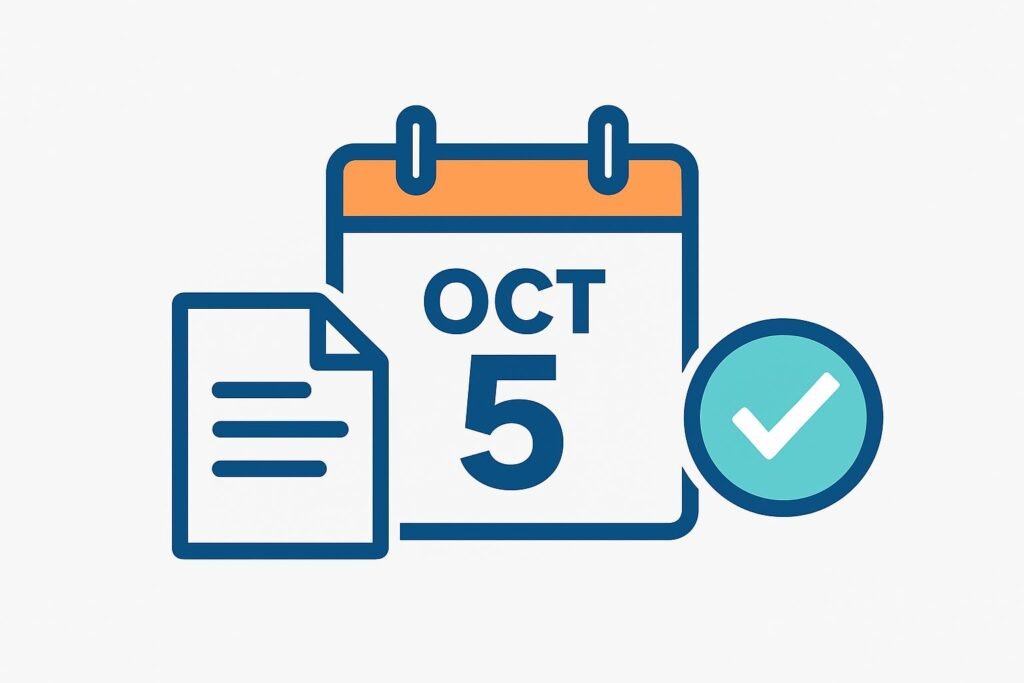
If you’ve recently become self-employed and earned over £1,000 in the previous tax year, you must register for Self Assessment. The registration deadline is October 5th.
In this guide, we explain:
- Who needs to register for Self Assessment?
- Key deadlines small business owners should be aware of.
- What happens if you miss the registration deadline?
What is Self Assessment?
Self Assessment is the name given to the system used by HMRC to collect income tax and national insurance that hasn’t already been deducted via PAYE (Pay-As-You-Earn).
If you’re self-employed, you use this system to pay any tax and national insurance you owe for the previous tax year.
Do all self-employed people need to register?
Broadly speaking, if you received income in the previous tax year which has not been taxed, you probably need to register.
HMRC says that you need to register if, during the previous tax year:
- You were a sole trader and earned more than £1,000 (before taking off any expenses). This is the trading allowance.
- You were a member of a business partnership.
Find out more about the steps you need to take to register in our guide – how to register for Self Assessment if you’re self employed.
The steps are slightly different depending on whether you’ve registered as self-employed and/or filed a tax return in the past.
If you’re ready to register right away, visit HMRC here.
What about company directors – is it mandatory to register?
In the past, HMRC stated that all company directors must register for SA. However, this guidance no longer applies.
If all of your income as a director has been taxed via PAYE (your salary), you don’t need to fill in a tax return.
However, if you have additional income – and your total income is above the personal allowance threshold (£12,570), you might have to file a tax return.
This includes if you receive dividends above the £500 tax-free allowance, or any other sources of income.
If HMRC asks you to file a tax return, but you have no additional taxable income to report, you can ask for your “notice to file” to be withdrawn.
Who else needs to file a tax return?
There are other reasons why you might need to register besides self-employment.
For example, if you receive other sources of income, such as:
- Rental income
- Investment returns
- Earnings from a ‘side hustle.
You might need to register if you made money from a ‘side hustle’ during the previous tax year.
You can learn more about who must register on this HMRC page.
What are the Self Assessment registration deadlines?
If you started your business during the previous tax year (April 6th to April 5th), you must register with HMRC by October 5th.
So, if you started a business as a sole trader in March 2025, you have until October 5th 2025 to register.
However, if you started working for yourself on April 7th, 2025, you must register by October 5th, 2026.
The deadline for filing your tax return is 31st January each year. This is also the date you must pay any tax you owe.
What happens if I don’t register by the October 5th deadline?
If you miss the October 5th deadline, HMRC can issue a ‘failure to notify’ penalty. This is usually a percentage of any tax you owe, and the later you register, the higher the potential fine.
In practice, HMRC often takes a reasonable view if you act quickly. Contact them as soon as you realise, explain your situation, and make sure you file your return and pay the tax due by 31st January.
If you don’t, you risk:
- Penalties for failing to notify HMRC on time.
- Interest charges on any late-paid tax.
- Escalating fines if you delay further or if HMRC believes you deliberately withheld information.
- A greater chance of being investigated in future.
As Qdos CEO, Seb Maley, warns:
If you kicked the can down the road and haven’t yet told HMRC that you now work for yourself – whether that’s full-time freelancing or through a side hustle – time is of the essence. Overlook this deadline and you’re on the back foot, and HMRC could hit you with a failure to notify penalty, which can amount to significant sums in some cases.
With platforms such as Airbnb, Vinted, eBay and Etsy now passing sellers’ income details to HMRC, it’s becoming far easier for the tax office to spot who hasn’t registered.



